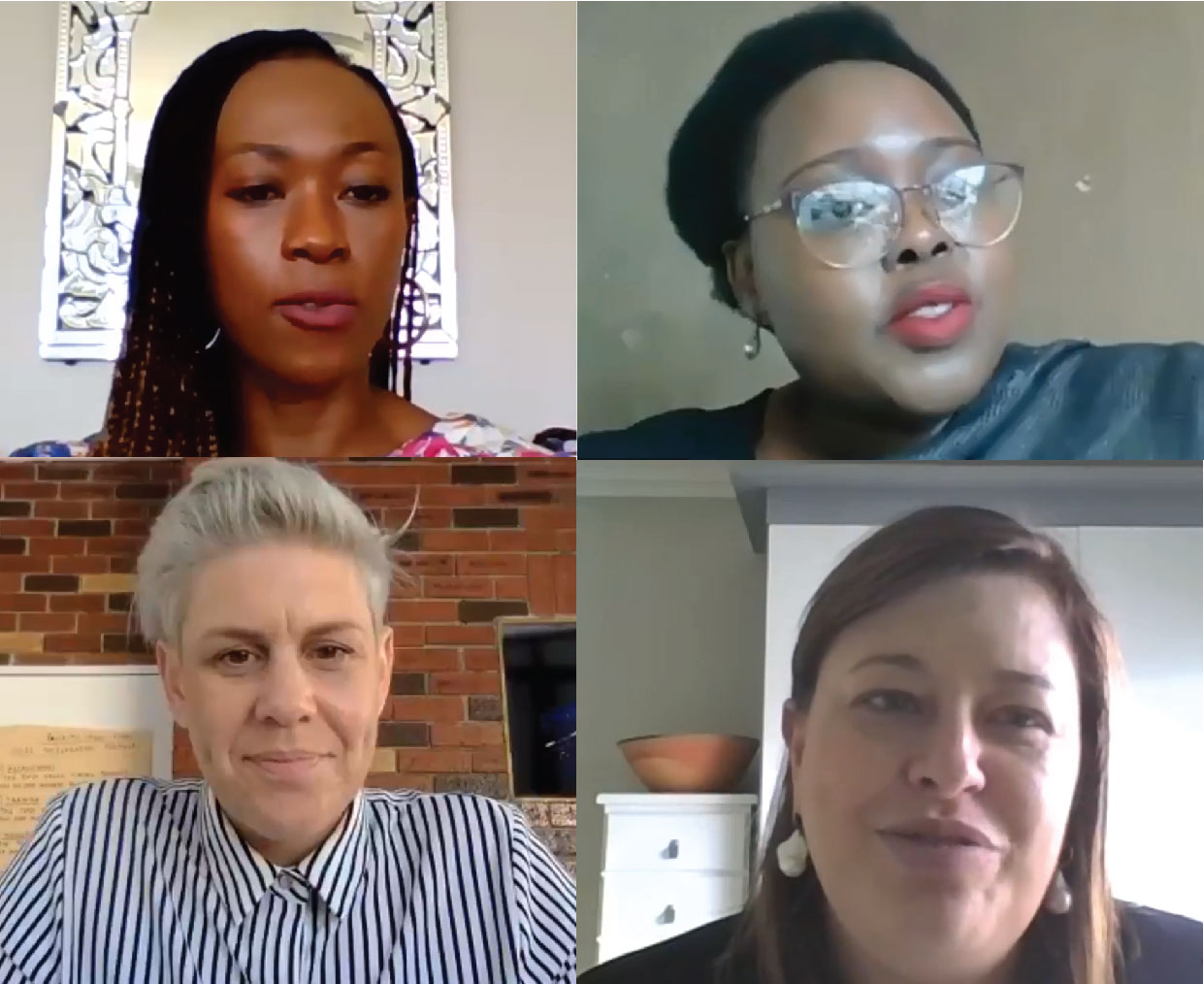This week we are talking all about funding, confidence and compliance, zooming in on how women in Africa can gain better access to the financial support they require to make their business a success. Our focus is on creating a bigger impact, by focusing on opportunities in Africa and beyond, to provide access to markets. We delve into boosting confidence levels when it comes to ‘going big’ – women should no longer fear asking for funding. Also on the agenda, we chat about the best solutions and support systems for business, and how to better your strategy for pitching your ideas to Venture Capitalists.
Four strong women panelists head this Masterclass: Sthembile Nkabinde – Founder of Khulasande Capital, Lullu Krugel – Chief Economist of KPMG South Africa, Nompumelelo Maisela – Acting Director: Strategy and Advocacy Black Industrialist Department of Trade Industry and Competition, and Karla Fletcher, Head of Marketing at Topco Media.
Karla introduced this week’s Masterclass by highlighting the acceleration of Gender Empowerment around the world, as much work still needs to be done. Her hope is that platforms as such inspire people to do good business and assist in the upliftment of the economy. Karla notes that there is an exciting year ahead, with many empowering projects lined up, such as the Standard Bank Top Women Membership initiative, geared towards accelerating women in business across Africa.
Polls from the Masterclass indicated that around 50% of respondents attending were currently trying to get a startup business off the ground, while just over 40% indicated they’d like to acquire between R1-R5 million worth of investment from either a venture capitalist or in Government assistance. Conclusively, it became clear that women in Africa are battling to get necessary financial assistance to make their business a reality.
Key takeaways from this Masterclass included:
- We are selling ourselves short sometimes as a country. We need to know that we are actually good enough to do good business, both within and outside of our borders. We have a rich variety of skills, and we need to utilise them – we need to stop standing back and watching the rest of the world.
- Virtual Platforms must be used to its full potential – having access to these new tools can create a bigger impact in Africa, and more international business opportunities.
- Women are lacking confidence to seek funding due to fear of failure and being shut down. This fear is something that needs to be overcome.
- We must implement better guidance and aids that will provide women entrepreneurs with the necessary support system for pitching, presentations, negotiations and engagement – accessibility is key here.
- Sometimes, as entrepreneurs, we need to consider different markets (even beyond domestic ones) and areas of opportunity, as your first choice might not be ‘it’ for you – reassess your business model regularly to make sure.
- Investors need to know that entrepreneurs are ‘investment ready’ to decide whether their business model is viable or not. Make sure you have a solid business plan and your vision is clear – get a second and third unbiased opinion.
- Compliance is a long journey – expect that it WILL take time. There are cost complications and logistics to follow. This is a major area of pain for women entrepreneurs.
- The onus is on ourselves as women to properly educate ourselves, despite the limiting barriers. You do not always need a tertiary qualification, but you do need to absorb all the knowledge you can on protocols, paperwork, negotiations and pitching – this is where mentorship and Government programmes can be useful.
- In terms of current trends, understand that everyone is financially cautious right now due to the pandemic. When it comes to Enterprise Development Programmes, wait it out – companies are waiting for the environment to be more conducive for investing in startup businesses.
- There are a few sectors that are interesting to look at right now, for investors. These are: Agriculture, Mining and Online Retail.
Missed the live Masterclass? You can now watch it on demand here
You can sign up for our Top Women membership here: https://www.topco.online/Standard-Bank-Top-Women-Membership
Sthembile Nkabinde is the Founder of Khulasande Capital. She is a qualified chartered accountant and has 11 years auditing, corporate finance, leverage finance and private equity experience. After qualifying with PricewaterhouseCoopers, Sthembile joined the corporate finance division of Investec. She is a highly driven, motivated and hardworking individual with a demonstrable track record in investment banking, private equity and as a non-executive director.
Lullu Krugel is the Chief Economist of KPMG South Africa, as well as a Partner in Financial Risk Management. She has been employed at KPMG for 8 years as a consulting economist, where she leads the Economics Practice. She has 17 years’ extensive economic experience, primarily in economic modelling techniques such as economy-wide modelling within the micro- and macro-economic environment.
Nompumelelo Maisela is the Acting Director: Strategy and Advocacy Black Industrialist Department of Trade Industry and Competition. Ms Maisela has worked as a strategist for the dtic’s Gender and Women Empowerment Unit, where publications such as Enterprising Women, 2011 and Towards an Enabling Environment for Women Economic Empowerment in South Africa. She is currently working on the Black Industrialist program as the strategist and advocate.

